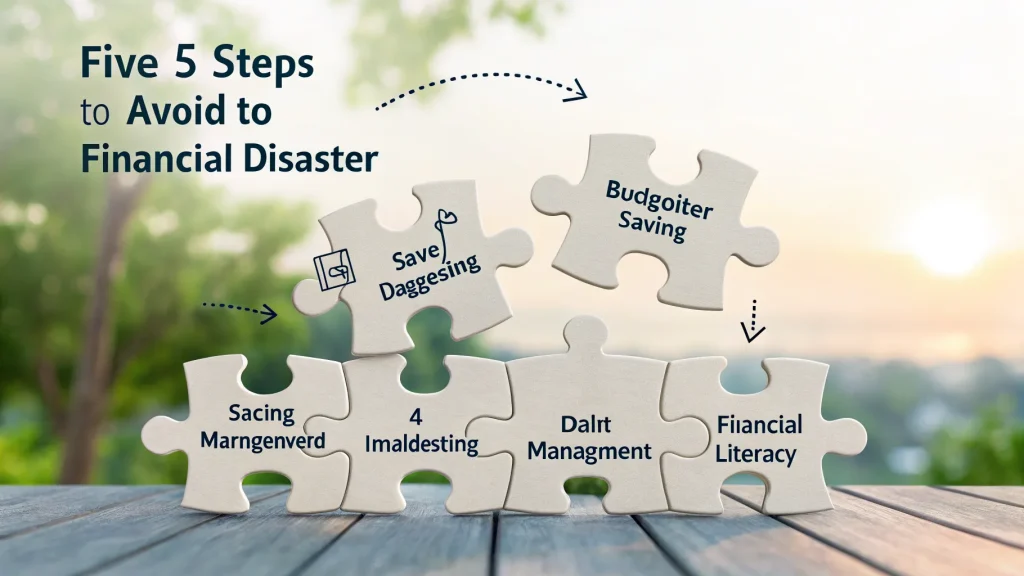Steve Chen of CalltoLeap always has great insight, but I was fascinated by this Instagram’s urgent message to young adults. Chen’s five-point plan isn’t just another set of vague financial tips—it’s a wake-up call for an entire generation that may be heading toward financial disaster.
Chen, a self-made millionaire by 37 who previously worked as a public school teacher, offers what I consider to be unusually blunt advice that goes against much of today’s “hustle culture” messaging. What makes his perspective particularly valuable is that it comes from someone who has walked the path from educator to financial freedom.
Table of Contents
ToggleThe Learning Season: Patience Before Prosperity
I find Chen’s first point refreshingly counter-cultural. While many influencers push young people to demand higher salaries immediately, Chen advocates for a different approach: “Get a job, work hard, and don’t ask for more money because you don’t deserve it yet. This is a season to learn, not to earn.”
This perspective resonates with me deeply. Your twenties should be about building a foundation of skills and experience rather than chasing the highest possible salary. The patience to delay gratification might be the most underrated financial skill of our time.
View this post on Instagram
Making Deliberate Choices
Chen recommends “The Defining Decade” by Dr. Meg Jay as essential reading. Having read this book myself, I agree it offers critical insights about how choices in your twenties shape your future decades. Too many young adults treat their twenties as an extended adolescence rather than the critical decade it truly is.
The book emphasizes that these years aren’t just a throwaway period before “real adulthood” begins—they’re the foundation upon which everything else is built.
Beyond the Degree: Skills for the AI Economy
Perhaps the most practical advice Chen offers concerns skill development. “Learn to increase your skills because college is not enough, regardless of what your parents or teachers told you,” he states.
In today’s rapidly evolving job market, I’ve observed that formal education often falls short. Chen highlights the specific skills required for our digital, AI-driven economy and notes that numerous resources to acquire these skills are available for free.
The skills most valuable in today’s economy include:
- Data analysis and interpretation
- Digital marketing and content creation
- Programming and technical literacy
- Emotional intelligence and communication
What’s particularly valuable about Chen’s approach is his emphasis on accessible learning. You don’t need another expensive degree to remain competitive—you need targeted skills that address market demands.
The Company You Keep
Chen’s fourth point touches on lifestyle choices: “Choose your friends wisely. The world will teach you that drinking and drugs are a standard way to have fun. Don’t do it. Take care of your mind, body, and soul.
While this may sound like standard advice, I’ve witnessed the profound impact that social circles have on financial outcomes. Your network doesn’t just influence your habits—it shapes your financial future. Friends who normalize excessive spending, substance use, or work avoidance create powerful headwinds against financial progress.
The 20% Rule
Finally, Chen delivers what I consider the cornerstone financial habit: “Save and invest 20% of your paycheck every month. If you don’t develop this good habit now, I promise you will end up like the rest of the United States, where they live paycheck to paycheck.
This 20% rule isn’t arbitrary—it’s the minimum threshold that creates meaningful compound growth over time. Starting this habit in your twenties rather than your thirties or forties can mean the difference between financial struggle and financial freedom.
What makes Chen’s advice particularly compelling is that he’s speaking from experience, not theory. He’s built wealth starting from a teacher’s salary—not exactly a profession known for creating millionaires.
For young adults navigating an uncertain economic landscape, these five principles offer a roadmap that cuts through the noise. While they may not be as exciting as promises of overnight success or get-rich-quick schemes, they represent something far more valuable: a proven path to financial security.
The choice is clear: follow conventional wisdom and likely end up struggling like most Americans, or take Chen’s unconventional but proven approach and set yourself up for a lifetime of financial freedom.
















